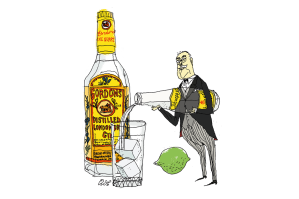Like millions of others, I thoroughly enjoyed reading The Salt Path, an account of how a penniless and homeless middle-aged couple found their souls by walking the entire length of the rugged 630-mile South West Coastal Path around the Cornish peninsula, which forms the southernmost tip of the United Kingdom. I also enjoyed watching the recent film of the book starring Gillian Anderson and Jason Isaacs, as we all like feel-good stories about plucky people battling against the odds and winning.
True, there were a few nagging doubts in my mind: if the supposedly mortally sick husband ‘Moth’ was really suffering from an incurable and debilitating degenerative disease, why does he appear perfectly well in the many interviews that the couple have given to promote their story; and what exactly was the nature of the vaguely described bad ‘investment’ that lost them their home? But I set these questions aside and just enjoyed their story.
Disillusionment, however, has now come hard and fast. According to an investigation by reporter Chloe Hadjimatheou of the British newspaper the Observer, The Salt Path’s author Raynor Winn and her husband are supposedly a pair of thieves, liars and grifters who conned the adoring public. For their part, the couple have said the Observer story is “highly misleading.”
To cut a long story short, Hadjimatheou argues that the Winns’ extended hard-luck story omits some vital basic facts: yes, they lost their farm in North Wales, but they only got into financial difficulties after stealing and being forced to repay some £64,000 from Raynor’s former employer, a Pwllheli estate agent called Martin Hemmings.
And while Moth may well be a sick man, he is also something of a walking medical miracle. Nine doctors and expert specialists consulted by Hadjimatheou say the average lifespan of CBD patients – the rare brain disease allegedly contracted by Moth – is six to eight years from diagnosis to death, or ten if sufferers are “lucky.” But Moth has supposedly had the illness for 18 years and is still with us – a feat unique in medical history.
The chief witness spoken to by Hadjimatheou is Ros Hemmings, Martin Hemmings’s widow, who says the Winns’ embezzling of her husband’s money “destroyed” him before his death in 2016, as he had trusted them. While the rest of the world was lapping up The Salt Path, Ros says the book makes her “feel sick.” And although the Winns eventually gave back the money they had stolen, a non-disclosure deal stopped Martin from speaking out.
Nor is ‘Winn’ the couple’s real name: Hadjimatheou reveals they are actually called Tim and Sally Walker. Another element left out of the book is that they supposedly owned a property in south-west France in addition to their Welsh farm, which, though derelict, they would visit and stay in a caravan on the site. A stream of unpaid bills relating to this property was sent to the new owner of the farm.
At the very least, then, the Winn/Walkers have questions to answer about their story, though so far they have merely issued a bland four-line statement in response to the Observer’s claims, reaffirming that The Salt Path tells their true story. Their publisher, Penguin, and the film’s producers have not responded at all.
Why did The Salt Path and its two sequels strike such a chord with its middle-class readers? I believe the story related in the book speaks to an atavistic English desire to chuck everything aside – possessions, money, responsibility, a fixed abode – and get out on the road again. As Philip Larkin put it in his poem “Toads”: “Why should I let the toad work / Squat on my life? / Six days a week it soils / With its sickening poison / Just to pay a few bills! / That’s out of proportion.”
When researching my biography of another poet, Rupert Brooke, I found that he and a group of young friends, while walking along cliffs in the South West in 1909, had made a pact to drop their middle-aged families and careers in some 30 years’ time and meet up at Basle station in 1933 to entirely remake their lives. Of course none of them kept the pact: life, and for some of them, including Rupert, death, got in their way first.
Haven’t we all felt a similar gypsyish need to kick over the traces and set off with a pack on our backs to rediscover the simple life? The Winns’ story had a special resonance for me as I too have twice set out to walk long sections of the South West Path (honestly I have – I’ve got the pictures to prove it) with different walking partners in 2013 and 2018. My aching limbs and shortness of breath testified that even a person in peak physical condition finds the path a tough proposition, let alone someone with a terminal illness.
Defenders of the Winn/Walkers’ apparent duplicity would argue that, as we are all now living in a post-truth era, if their story isn’t exactly 100 percent accurate it is still “their truth” and therefore authentic. But I for one, being an old romantic, identified with the Winns’ heroic endeavor, so it is for me a real disappointment to discover, with a sense of weary inevitability, that they are probably just another pair of dishonest grifters making money out of our gullibility. If only their story had really been true.


























Leave a Reply